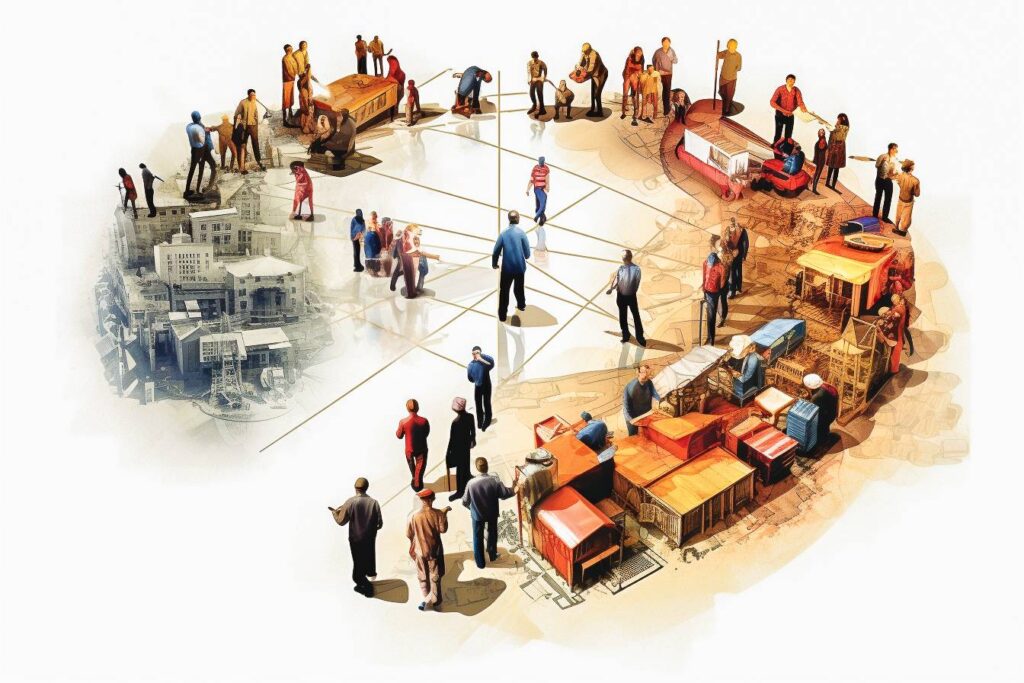Economic systems manage the production, distribution and consumption of goods and services in society. These systems are a way of allocating resources, creating wealth and allowing individuals to participate in economic activities.
Economic systems can be divided into three broad groups: free economies, command economies and mixed economies. In today’s globalised world, the traditional economy will be discarded as an inefficient economic model. In a free market economy, individual choices and interactions in the market determine the allocation of resources. This system emphasises the role of supply and demand, competition and self-gain (the self-gain of the individual is the aggregate good of society) in promoting economic activity. The opposite is a command economy, in which the state controls resource allocation and production targets. A mixed economy strikes a balance by incorporating elements of both the free market and the command economy, allowing free enterprise while maintaining state intervention in certain sectors.
A mixed economy is a delicate balance between state intervention and the changing conditions of the free market. This model includes a role for the state in addressing market failures and promoting social justice. This balance requires an understanding of the changing needs of society.
The philosophy underpinning economic systems reflects societal values and political ideologies. Capitalism, which dominates free market economies, emphasizes private property, the free market and the pursuit of profit as the main drivers of economic prosperity. Socialism, found in varying degrees in command economies and mixed economies, emphasizes public ownership, social welfare and the reduction of economic inequalities. These ideological differences shape the policies, and the resulting rules, that govern economic interactions in society.
The effectiveness of an economic system can be measured by the efficiency of resource allocation, economic growth and the level of well-being of the population. Free market economies are characterized by greater innovation and adaptability, allowing them to respond quickly to changing market conditions. However, such economic systems run a greater risk of more pronounced inequalities in the distribution of resources among the population. Inequalities are ideologically addressed by command economies, but these can be inefficient and individuals are limited in their ability to participate in market processes.
There is no single ideal economic system today, but idealizing the goals of such a system would lead to sustainable growth, an equitable society and high levels of social welfare.




